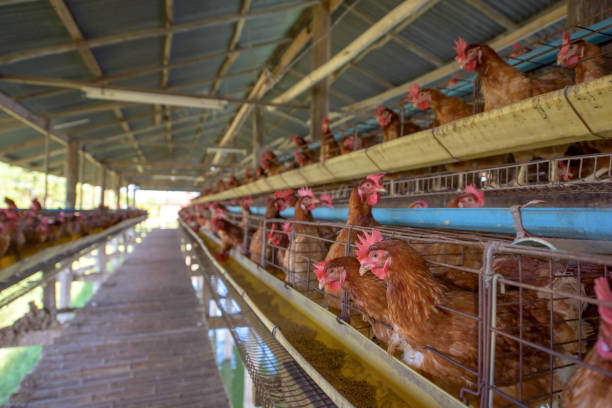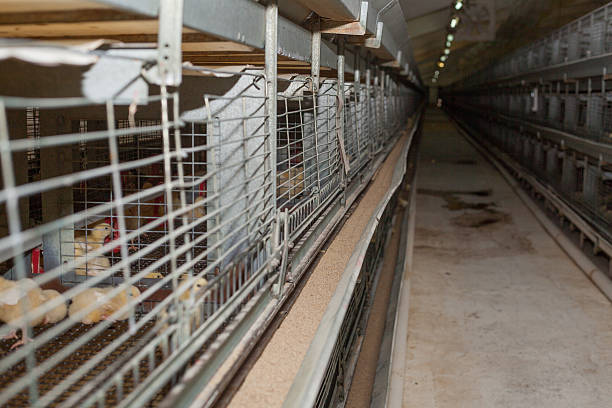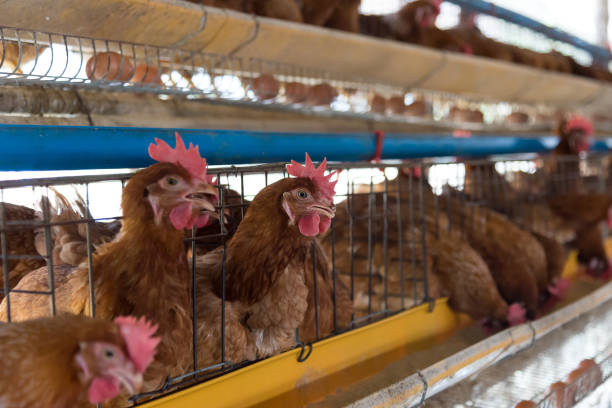Optimizing Hydration: Choosing the Right Drinking System for 100,000 Broilers in Kenya
Optimizing Hydration: Choosing the Right Drinking System for 100,000 Broilers in Kenya
Kenya’s poultry industry is experiencing rapid growth, especially in broiler production. Efficient management practices are becoming increasingly important for profitability, and one of the most critical aspects of broiler management is ensuring adequate hydration. For a large-scale operation like 100,000 broilers, selecting the right drinking system is not just a matter of convenience; it’s a pivotal decision that impacts bird health, growth rate, feed conversion ratio, and ultimately, the bottom line.
**Why Hydration Matters – A Cornerstone of Broiler Health and Productivity**
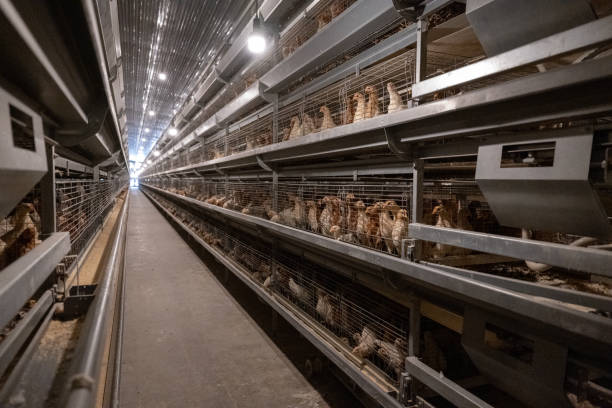
Water is fundamental to life, and broilers are no exception. It plays a vital role in numerous physiological functions within the chicken’s body:
* **Nutrient Transport:** Water acts as the vehicle for transporting nutrients absorbed from feed throughout the bloodstream to various cells and tissues. Without sufficient water, the body struggles to effectively deliver essential nutrients, hindering growth and overall health.
* **Temperature Regulation:** Chickens, especially fast-growing broilers, are susceptible to heat stress, particularly in Kenya’s hot climate. Water helps dissipate heat through panting and evaporation, keeping their body temperature within a healthy range. Dehydration impairs this cooling mechanism, increasing the risk of heatstroke and mortality.
* **Waste Elimination:** Water is crucial for flushing out metabolic waste products through the kidneys and digestive system. Adequate hydration prevents the buildup of toxins that can negatively affect liver and kidney function, contributing to diseases and reduced performance.
* **Digestion and Metabolism:** Water aids in the breakdown of food in the digestive tract and participates in various metabolic processes essential for energy production and growth.
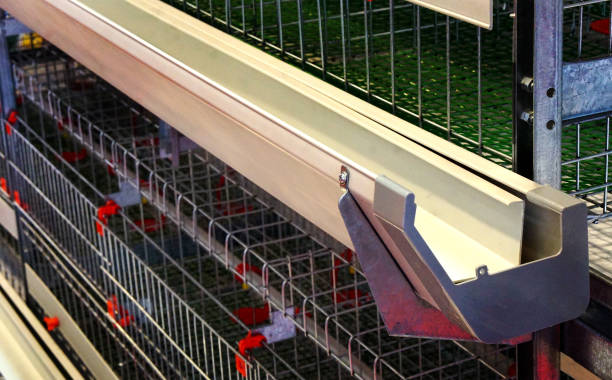
* **Overall Well-being:** Sufficient water intake directly impacts the general well-being of broilers. Dehydration results in lethargy, reduced feed intake, and increased susceptibility to diseases.
**The Challenge of Supplying Water to 100,000 Broilers**
Providing clean, accessible water to a flock of 100,000 broilers isn’t as simple as filling a few buckets. The sheer volume of birds presents unique challenges:
* **Water Demand:** Broilers’ water consumption increases rapidly as they grow. A precise estimate of their daily water demands is critical in determining the size and capacity of the drinking system. Overlooking this leads to water restriction, while overestimating the demand leads to unnecessary investment.
* **Water Source and Quality:** The source of water supply (borehole, municipal supply, river) must be reliable and capable of delivering the required volume consistently. Water quality is also crucial. Contaminated water can introduce diseases and pathogens, jeopardizing the entire flock. Regular water testing and treatment are essential.
* **Distribution and Accessibility:** Ensuring that all birds have equal access to water is paramount. The drinking system must be well-designed to provide uniform water distribution throughout the broiler house, minimizing competition and stress among birds.
* **Hygiene and Maintenance:** Drinking systems are prone to contamination with feed, fecal matter, and biofilm buildup. Regular cleaning and disinfection are essential to prevent the spread of diseases and maintain water quality.
* **Labor Costs:** In a large-scale operation, manual water delivery and cleaning become labor-intensive and inefficient. Automated systems can significantly reduce labor costs and improve overall efficiency.
**Types of Drinking Systems for Broilers: Matching the Best System to Your Needs**
Several types of drinking systems are available for broiler production, each with its own advantages and disadvantages:
* **Nipple Drinkers:** These are the most widely used systems in modern broiler production. Nipple drinkers consist of small, stainless-steel nipples that release water when pecked by a bird.
*Advantages: Reduced water wastage, improved hygiene, lower risk of contamination, even water distribution.
*Disadvantages: Higher initial investment, require adequate water pressure, prone to clogging if water contains sediment.
*Considerations: Consider the type of nipple (vertical or horizontal), nipple density per bird, and water pressure regulators. High-quality nipples are more durable and less likely to leak.
* **Bell Drinkers:** These consist of a large, bell-shaped reservoir that fills with water, and birds drink from the rim.
*Advantages: Simpler and cheaper than nipple drinkers, requires less maintenance.
*Disadvantages: Higher water wastage, increased risk of contamination, uneven water distribution, can create wet litter conditions.
*Considerations: Bell drinkers are generally less suitable for large-scale, intensive broiler production due to hygiene concerns and water wastage.
* **Cup Drinkers:** These involve small cups that automatically fill with water from a supply line.
*Advantages: Reduced water wastage compared to bell drinkers, improved hygiene compared to bell drinkers, relatively simple to install and maintain.
*Disadvantages: Can be more expensive than bell drinkers, can be challenging to clean thoroughly.
*Considerations: Cup drinkers offer a good compromise between nipple drinkers and bell drinkers, especially for producers looking for a cost-effective alternative to nipple systems.
**Key Factors to Consider When Choosing a Drinking System**
When deciding on the best drinking system for your 100,000 broilers in Kenya, weigh the following factors carefully:
* **Water Quality:** If your water source is prone to contamination, a closed system like nipple drinkers is preferable to minimize the risk of introducing pathogens into the water supply. Consider installing a water filtration and treatment system, regardless of the type of drinking system chosen. Regular water testing will help you determine the effectiveness of your water quality management procedures.
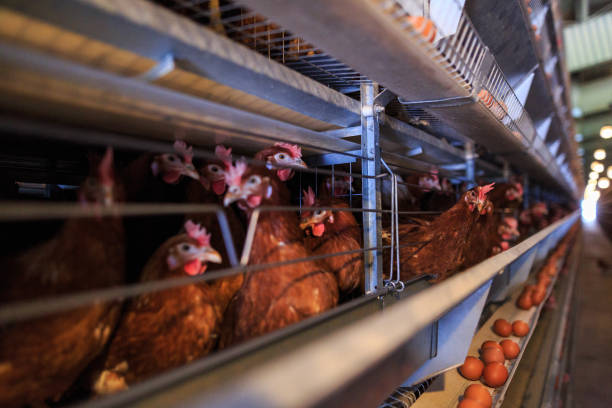
* **Climate Conditions:** Kenya’s hot climate necessitates a system that promotes efficient water intake and minimizes water wastage. Nipple drinkers are particularly effective in reducing water spillage and keeping the litter dry, which is essential for controlling ammonia levels and respiratory issues.
* **Broiler Breed and Growth Rate:** Fast-growing broiler breeds require a readily accessible and reliable water supply. Nipple drinkers with adequate flow rates and nipple density are crucial to meeting the water demands of these birds.
* **Litter Management:** Wet litter is a major problem in broiler houses, leading to ammonia buildup, footpad dermatitis, and other health issues. Choosing a drinking system that minimizes water spillage, like nipple drinkers, is essential for maintaining dry litter conditions.
* **Labor Availability:** Consider the level of automation you require based on the availability and cost of labor. Automated systems like nipple drinkers can drastically reduce the labor needed for water management.
* **Budget:** The initial investment cost is an important consideration, but remember to factor in long-term costs like water wastage, maintenance, and potential health problems associated with less efficient systems.
* **Ease of Maintenance:** Choose a system that is easy to clean, disinfect, and repair. Regular maintenance is essential for optimal performance and longevity.
* **Biosecurity:** The drinking system should be designed to minimize the risk of introducing diseases into the flock. Closed systems like nipple drinkers are generally more biosecure than open systems like bell drinkers.
**Recommendations for a 100,000 Broiler Operation in Kenya**
For a large-scale broiler operation of 100,000 birds in Kenya, nipple drinker systems are generally the preferred choice due to their numerous advantages:
* **Maximize Hygiene and Minimize Water Wastage:** Nipple drinkers significantly reduce water wastage and keep the litter dry, contributing to a healthier environment for the birds.
* **Improved Feed Conversion Ratio:** By minimizing water spillage and maintaining dry litter conditions, nipple drinkers can improve feed conversion ratio, resulting in higher profitability.
* **Reduced Disease Risk:** The closed system of nipple drinkers reduces the risk of water contamination and disease transmission, protecting the health of the flock.
* **Efficient Water Supply:** Ensure adequate water pressure and flow rates to meet the water demands of all the broilers. Install pressure regulators to maintain consistent water supply throughout the system.
* **Proper Installation and Maintenance:** Follow the manufacturer’s recommendations for installation and maintenance. Regularly inspect the system for leaks, clogs, and other problems.
* **Water Treatment:** Implement a comprehensive water treatment program to ensure the water is free from harmful bacteria and pathogens.
**Beyond the System: Critical Management Practices for Hydration**
Choosing the right drinking system is just the first step. Effective water management also includes these critical practices:
* **Monitor Water Consumption:** Track daily water consumption to identify any potential problems early on. A sudden drop in water intake can indicate illness or stress.
* **Provide Electrolytes:** During periods of heat stress or illness, supplement the water with electrolytes to help maintain hydration and electrolyte balance.
* **Adjust Nipple Height:** As the broilers grow, adjust the height of the nipple drinkers to ensure they are easily accessible. Birds should be able to drink comfortably without straining.
* **Train Chicks to Drink:** Newly arrived chicks may need to be trained to use the drinking system. Gently guide them to the nipples to show them how to access water.
* **Regular Cleaning and Disinfection:** Regularly clean and disinfect the drinking system to prevent the buildup of biofilm and bacteria. Follow a strict cleaning protocol using approved disinfectants.
* **Water Temperature:** Ensure the water temperature is optimal, as extremely hot or cold water can deter birds from drinking.
**Partnering with the Right Supplier: Livi Machinery – Your Poultry Solution Provider**
Choosing the correct drinking system is a critical decision. Partnering with a reputable poultry equipment supplier like Livi Machinery can provide valuable expertise and support. Livi Machinery offers high-quality egg-laying chicken cages and broiler chicken cages designed for optimal performance and durability in African conditions. They have experience in designing and installing complete broiler production systems, including drinking systems, ventilation systems, and feeding systems. Livi Machinery helps poultry farms in Kenya make informed decisions and achieve their production goals by providing guidance on system design, installation, maintenance, and troubleshooting.
Investing in a high-quality drinking system and implementing sound water management practices is essential for the health, growth, and profitability of your 100,000 broilers in Kenya. By carefully considering the factors outlined in this article and seeking expert advice from a trusted partner like Livi Machinery, you can ensure your birds have access to clean, fresh water at all times, leading to a productive and profitable operation.



